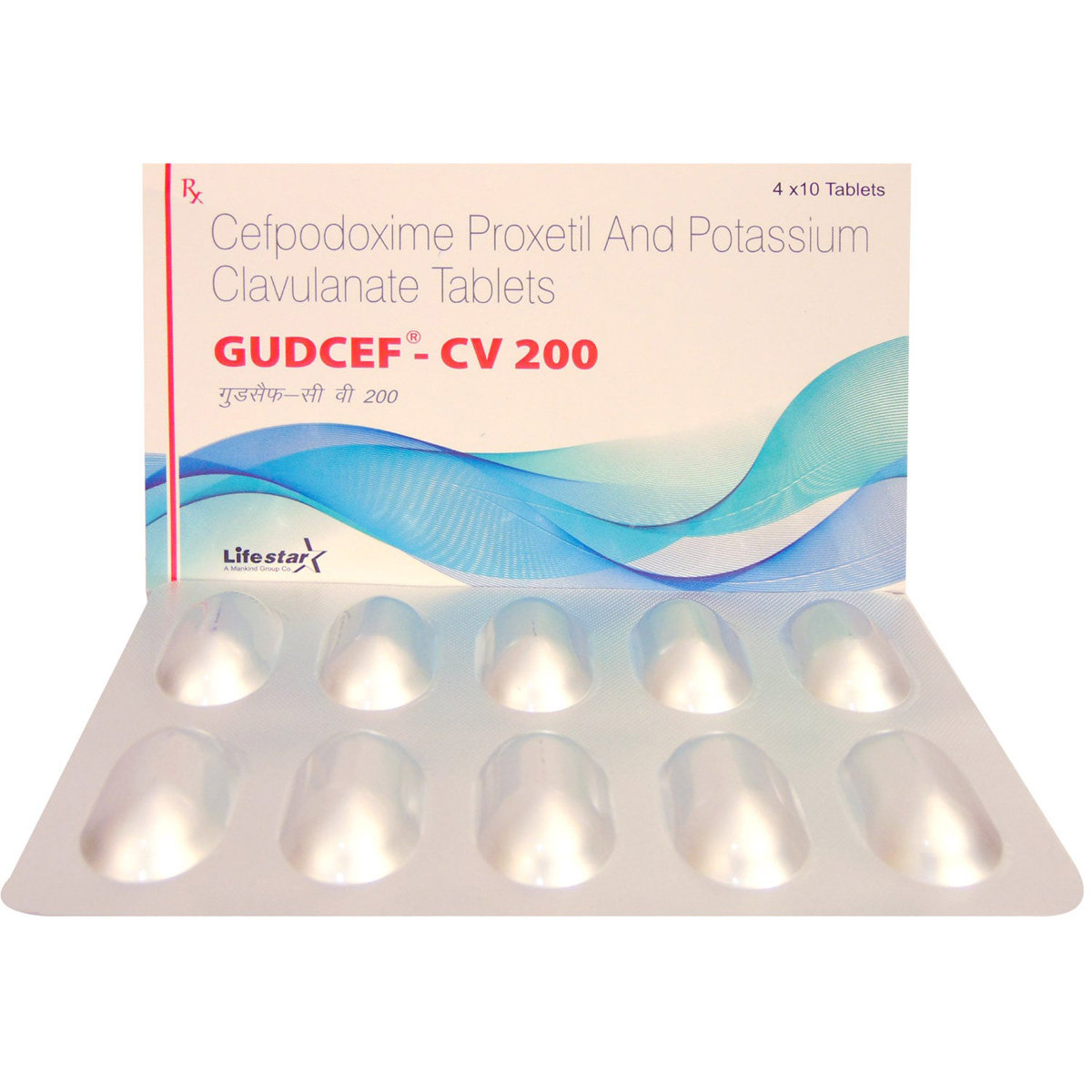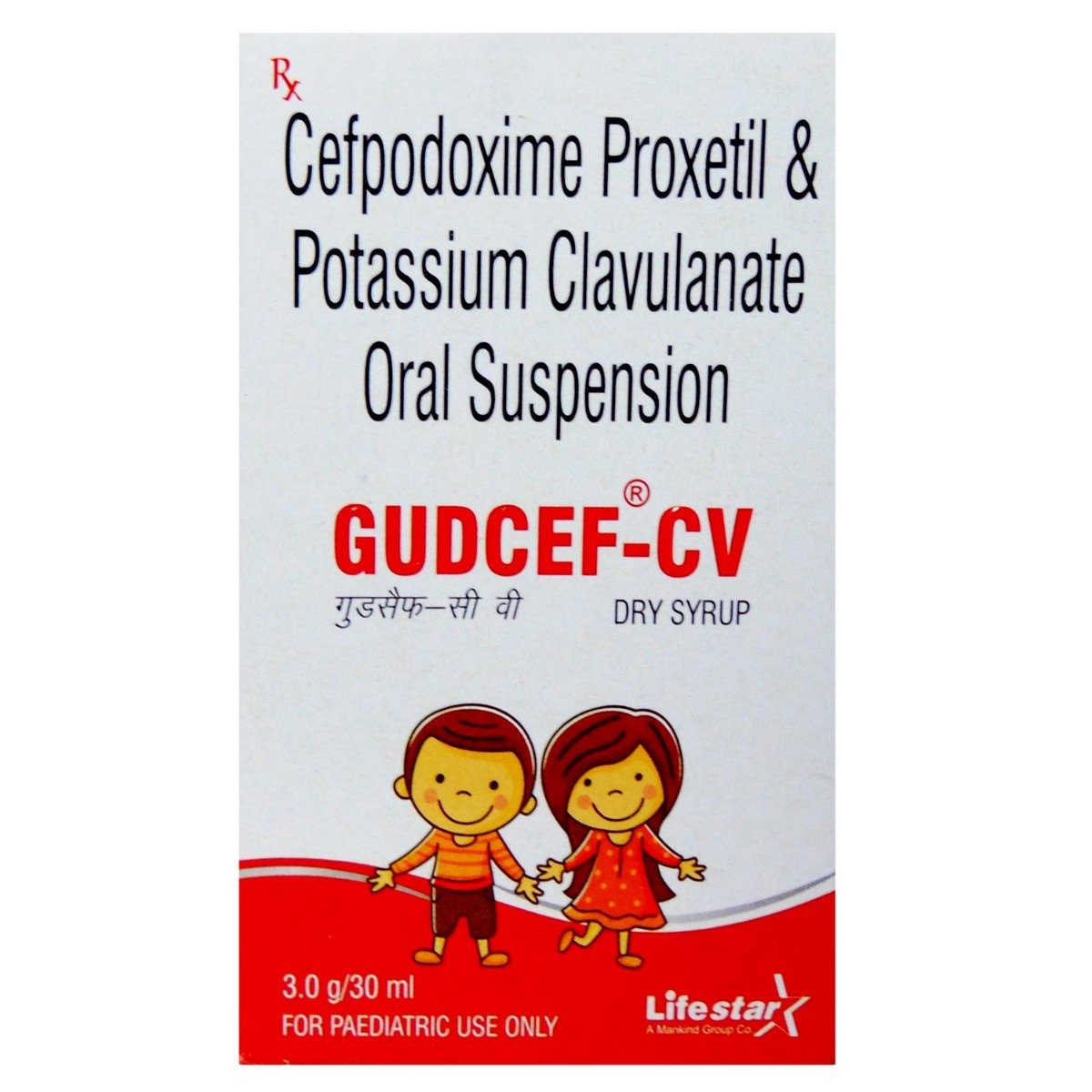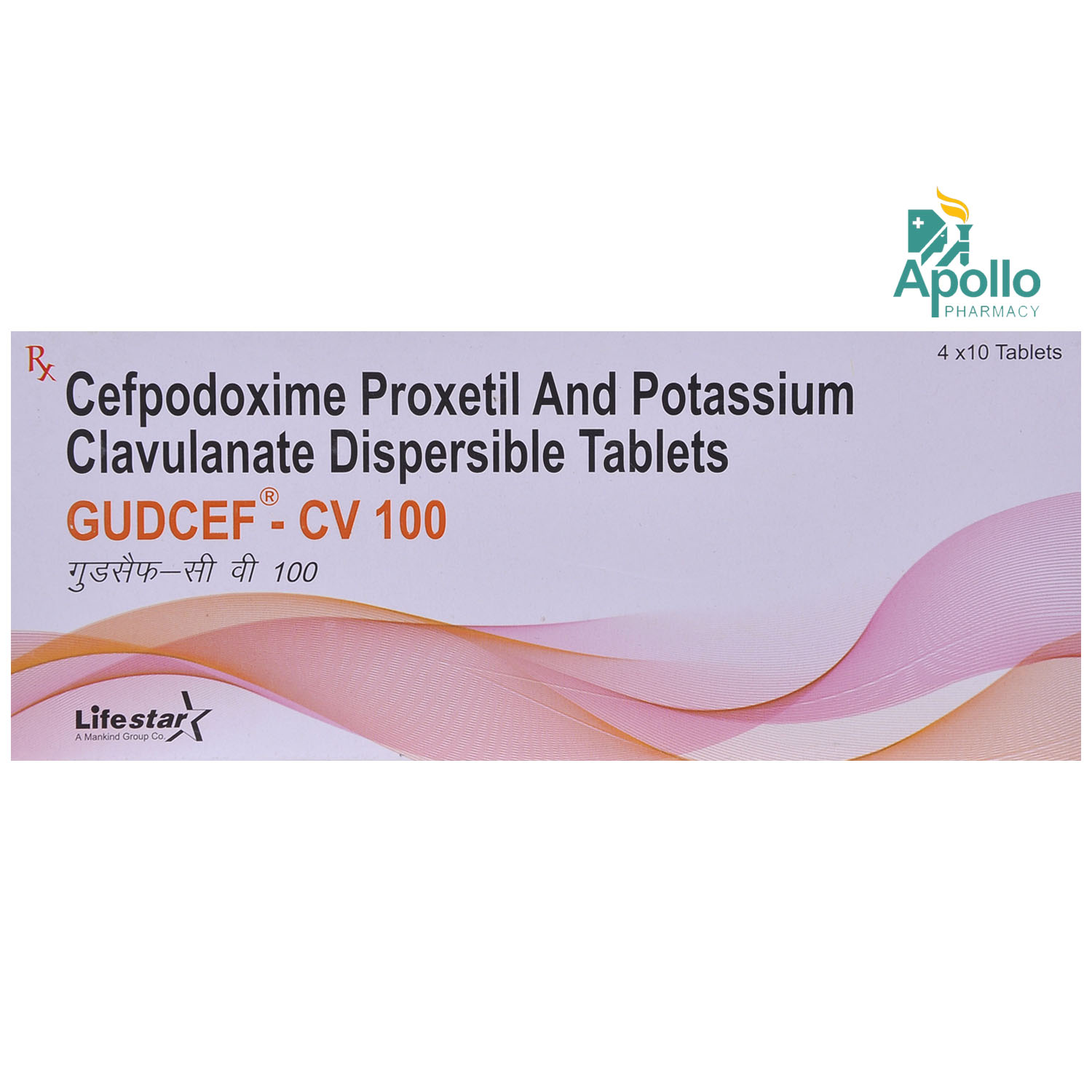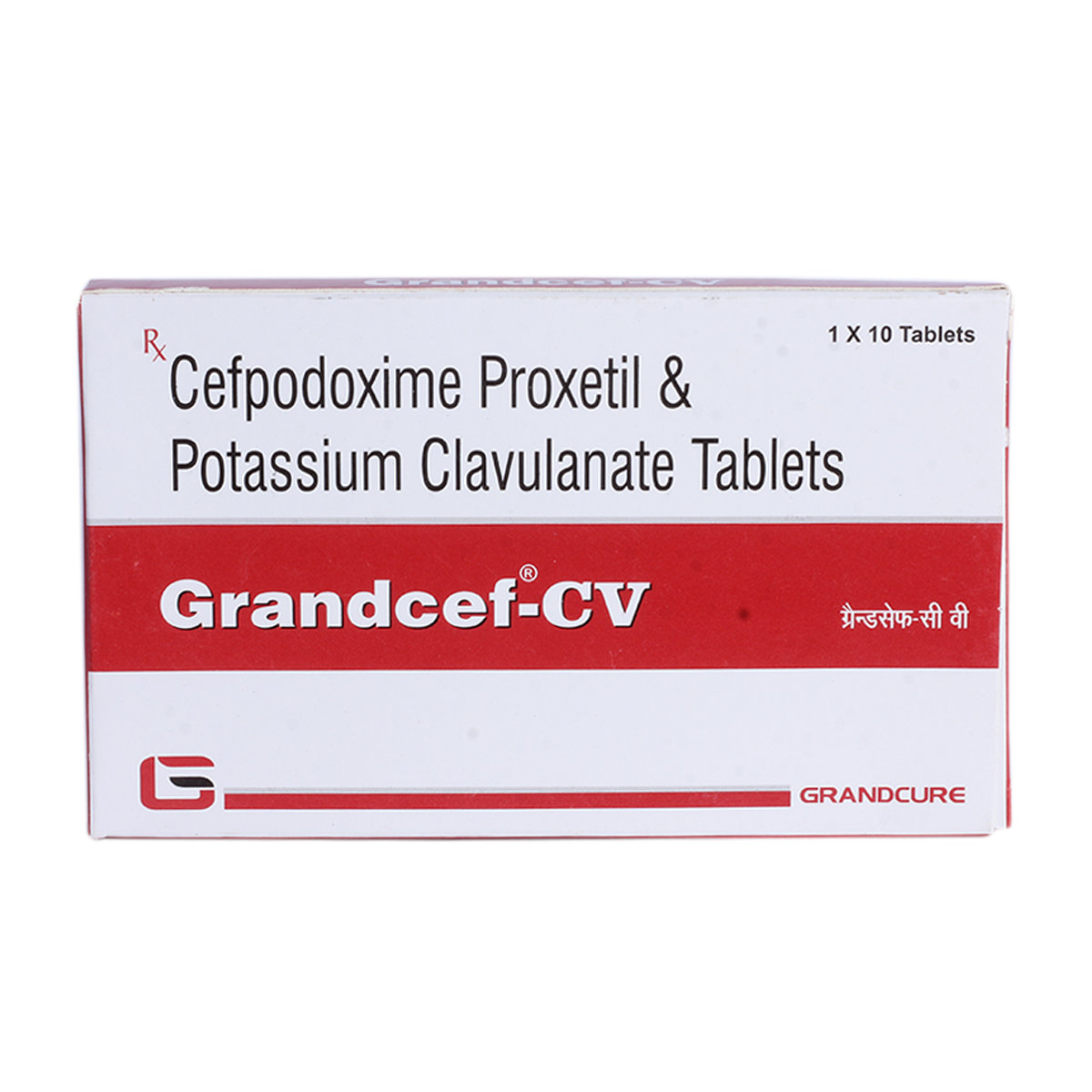Cefpodoxime+clavulanic Acid
About Cefpodoxime+clavulanic Acid
Cefpodoxime+clavulanic Acid belongs to the group of medicines called antibiotics used to treat various bacterial infections such as pharyngitis/tonsillitis (throat infections), otitis media (ear infections), sinusitis (infection of the sinuses), community-acquired pneumonia, gonorrhoea (sexually transmitted disease), anorectal infections in women, skin, and urinary tract infections.
Cefpodoxime+clavulanic Acid is a combination of two antibiotics, namely: Cefpodoxime (cephalosporin antibiotic) and Clavulanic acid (beta-lactamase inhibitor). Cefpodoxime works by preventing the formation of bacterial cell covering, which is necessary for their survival. Thereby, kills the bacteria. Clavulanic acid works by decreasing bacterial resistance and enhancing the activity of Cefpodoxime against the bacteria. Together, Cefpodoxime+clavulanic Acid helps to treat bacterial infections.
Take Cefpodoxime+clavulanic Acid with food. The dose and duration of Cefpodoxime+clavulanic Acid can vary depending upon your condition and severity of the infection. In some cases, you may experience certain common side-effects such as diarrhoea, abdominal pain, nausea, and vomiting. Most of these side-effects do not require medical attention and will resolve gradually over time. However, you are advised to talk to your doctor if you experience these side-effects persistently.
Before starting Cefpodoxime+clavulanic Acid, please inform your doctor if you have any allergy (against any antibiotic), kidney or liver problems. Do not take Cefpodoxime+clavulanic Acid on your own as self-medication may lead to antibiotic-resistance in which antibiotics fail to act against specific bacterial infections. Consult your doctor before taking Cefpodoxime+clavulanic Acid if you are pregnant or planning for pregnancy. Avoid taking Cefpodoxime+clavulanic Acid if you are breastfeeding as Cefpodoxime+clavulanic Acid may pass into breast milk. Avoid alcohol consumption while taking Cefpodoxime+clavulanic Acid to prevent unpleasant side-effects. Cefpodoxime+clavulanic Acid may cause dizziness, so drive with caution.
Uses of Cefpodoxime+clavulanic Acid
Medicinal Benefits
Cefpodoxime+clavulanic Acid belongs to the group of medicines called antibiotics used to treat various bacterial infections such as pharyngitis/tonsillitis (throat infections), otitis media (ear infections), sinusitis (infection of the sinuses), community-acquired pneumonia, gonorrhoea (sexually transmitted disease), anorectal infections in women, skin, and urinary tract infections. Cefpodoxime+clavulanic Acid is a combination of two antibiotics, namely: Cefpodoxime (cephalosporin antibiotic) and Clavulanic acid (beta-lactamase inhibitor). Cefpodoxime works by preventing the formation of bacterial cell covering, which is necessary for their survival. Thereby, kills the bacteria. Clavulanic acid works by decreasing bacterial resistance and enhancing the activity of cefpodoxime against the bacteria. Together, Cefpodoxime+clavulanic Acid helps to treat bacterial infections. Cefpodoxime+clavulanic Acid is a broad-spectrum antibiotic which is effective against both gram-positive and gram-negative bacteria, including beta-lactamase-producing strains.
Directions for Use
Storage
Side Effects of Cefpodoxime+clavulanic Acid
- Diarrhoea
- Abdominal pain
- Nausea
- Vomiting
Drug Warnings
Before starting Cefpodoxime+clavulanic Acid, please inform your doctor if you have any allergy (against any antibiotic), kidney or liver problems. Cefpodoxime+clavulanic Acid should not be given to patients with rare hereditary problems of galactose intolerance (the Lapp lactase deficiency or glucose-galactose malabsorption). Do not take Cefpodoxime+clavulanic Acid on your own as self-medication may lead to antibiotic-resistance in which antibiotics fail to act against specific bacterial infections. Consult your doctor before taking Cefpodoxime+clavulanic Acid if you have colitis (inflammation of the colon). Consult your doctor before taking Cefpodoxime+clavulanic Acid if you are pregnant or planning for pregnancy. Avoid taking Cefpodoxime+clavulanic Acid if you are breastfeeding as it may pass into breast milk. Avoid alcohol consumption while taking Cefpodoxime+clavulanic Acid to prevent unpleasant side-effects. Cefpodoxime+clavulanic Acid causes dizziness, so drive with caution.
Drug Interactions
Drug-Drug Interactions: Cefpodoxime+clavulanic Acid may have interaction with anticoagulants (warfarin), anti-gout (probenecid), diuretics (furosemide), and vitamin supplements (calcium/vitamin D).
Drug-Food Interactions: No interactions found/established.
Drug-Disease Interaction: Inform your doctor if you have colitis (inflammation in the lining of the colon), seizures, dialysis, kidney and liver dysfunction.
Drug-Drug Interactions Checker List:
Safety Advice

Alcohol
cautionAvoid consuming alcohol while taking Cefpodoxime+clavulanic Acid to prevent unpleasant side-effects.

Pregnancy
cautionCefpodoxime+clavulanic Acid belongs to pregnancy category B. Please consult your doctor if you are pregnant, your doctor will prescribe Cefpodoxime+clavulanic Acid only if the benefits outweigh the risks.

Breast Feeding
cautionCefpodoxime+clavulanic Acid may pass into breast milk. Avoid taking Cefpodoxime+clavulanic Acid if you are breastfeeding unless prescribed.

Driving
cautionCefpodoxime+clavulanic Acid may cause dizziness. Drive only if you are alert and omit driving or operating machinery if you feel dizzy.

Liver
cautionDose adjustment may be needed. Please consult your doctor before taking Cefpodoxime+clavulanic Acid if you have liver impairment/liver disease.

Kidney
cautionDose adjustment may be needed. Please consult your doctor if you have any concerns regarding this or if you have kidney impairment/kidney disease before taking Cefpodoxime+clavulanic Acid.

Children
safe if prescribedCefpodoxime+clavulanic Acid is safe for children if prescribed by a doctor. The dose and duration may vary depending upon age and severity of the infection.
Habit Forming
Diet & Lifestyle Advise
- Eat fibre rich food like whole grains, beans, lentils, berries, broccoli, peas and bananas.
- Avoid foods rich in calcium, grapefruit and grapefruit juice as they might hinder the absorption of antibiotics.
- Avoid consumption of alcohol and usage of tobacco.
- Antibiotics can alter the useful bacteria in the stomach, which help indigestion. Therefore, you are advised to take foods rich in probiotics such as yoghurt/curd, kefir, sauerkraut, tempeh, kimchi, miso, kombucha, buttermilk, natto and cheese.
Patients Concern
Disease/Condition Glossary
Bacterial infections: A bacterial infection is a condition in which harmful bacteria enter, multiply, and infect our body. Infectious or harmful bacteria can make you sick and reproduce quickly in your body. These harmful bacteria produce chemicals known as toxins, which can damage tissue and make you sick. It can target any body part and multiply very quickly. When you get infected with bacteria, you can experience generalized symptoms, like fevers, chills, and fatigue. Bacteria are of various forms comprising commonly of spherical, rod, and spiral-shaped. Bacterial infections vary from minor illnesses like sore throat and ear infections to severe brain infections like meningitis and encephalitis. Anyone can become infected with a bacterial infection. But, people with weak immune systems or taking immunosuppressive medicine are more prone to bacterial infection.
FAQs
Cefpodoxime+clavulanic Acid is a combination of two antibiotics, namely: Cefpodoxime (cephalosporin antibiotic) and Clavulanic acid (beta-lactamase inhibitor). Cefpodoxime works by preventing the formation of bacterial cell covering, which is necessary for their survival. Thereby, kills the bacteria. Clavulanic acid works by decreasing bacterial resistance and enhancing the activity of cefpodoxime against the bacteria. Together, Cefpodoxime+clavulanic Acid helps to treat bacterial infections.
Cefpodoxime+clavulanic Acid may cause Clostridium difficile-associated diarrhoea (CDAD). Treatment with antibiotics alters the normal flora leading to overgrowth of Clostridium difficile; this causes diarrhoea. Drink lots of fluids and eat food rich in fibre if you experience diarrhoea. If you find blood in stools (tarry stools) or if you experience prolonged diarrhoea with abdominal pain, stop taking Cefpodoxime+clavulanic Acid and consult your doctor. Do not take anti-diarrheal medicine on your own.
Do not stop taking Cefpodoxime+clavulanic Acid despite symptomatic relief. To treat your condition effectually continue taking Cefpodoxime+clavulanic Acid for as long as it has been prescribed for you.
Do not take Cefpodoxime+clavulanic Acid on your own as self-medication may lead to antibiotic-resistance in which antibiotics fail to act against specific bacterial infections.








